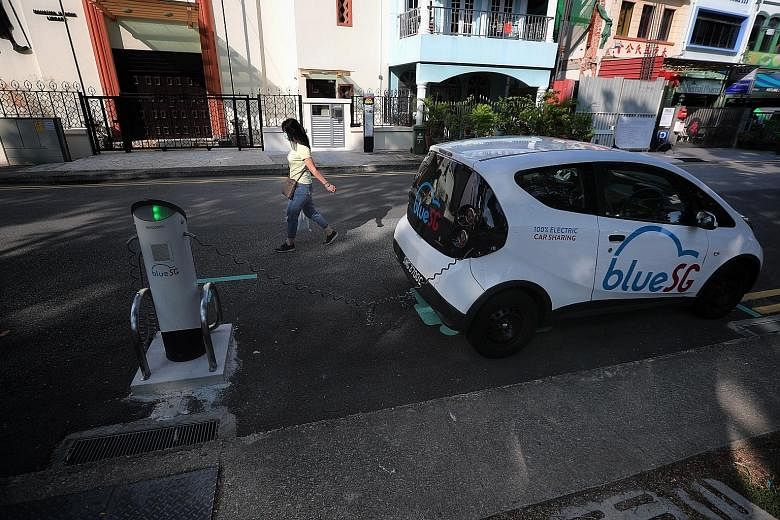More electric car incentives are on the way as the Government speeds up towards the phasing-out of vehicles running purely on fuels here.
As part of the inter-ministerial Singapore Green Plan 2030 announced yesterday, the Government said it will revise Singapore's multi-layered vehicle tax structure to make it easier to buy and own electric vehicles (EVs).
EV incentives were enhanced just last month, when bigger rebates under the Vehicular Emissions Scheme as well as the Electric Vehicle Early Adoption Incentive kicked in. Together, they accord an electric car buyer as much as $45,000 in tax breaks. The road tax formula has also been revised to make it less onerous for electric car owners.
The Government said all new cars registered from 2030 will have to be "cleaner-energy models", but did not specify what these are.
It will also more than double the targeted number of EV charging points from 28,000 to 60,000 by 2030.
Goals for public transport under the Green Plan were largely reiterations of those set several years ago. These include gradually converting all buses to "cleaner-energy" models, and expanding the rail network to 360km by the 2030s, from around 230km today.
Singapore aims to have three-quarters of morning-peak commutes done by buses and trains. To this end, car-free town centres are also being developed, the first one being in Tengah.
To further encourage walking and cycling, Singapore's network of cycling paths will be tripled to 1,320km by 2030, and roads will be repurposed for active mobility use where possible.
Asian Clean Fuels Association executive director Clarence Woo said: "Personally, I'm very pleased with the focus on cleaner vehicles because that will certainly reduce the pollution level on Singapore roads."
But he cautioned against focusing solely on electrified vehicles. Deriving which vehicles are clean "requires a thorough life cycle analysis... (but) many governments tend to suggest a simplified approach without going through this review because EV is an expedient green transport policy".
The Green Plan is spearheaded by the ministries of Education, National Development, Sustainability and the Environment, Trade and Industry, and Transport. The 10-year plan sets out sustainability targets to achieve net zero emissions as soon as viable and to enhance Singapore's livability.
-
1,320km
To further encourage walking and cycling, Singapore's network of cycling paths will be tripled to this amount by 2030.


